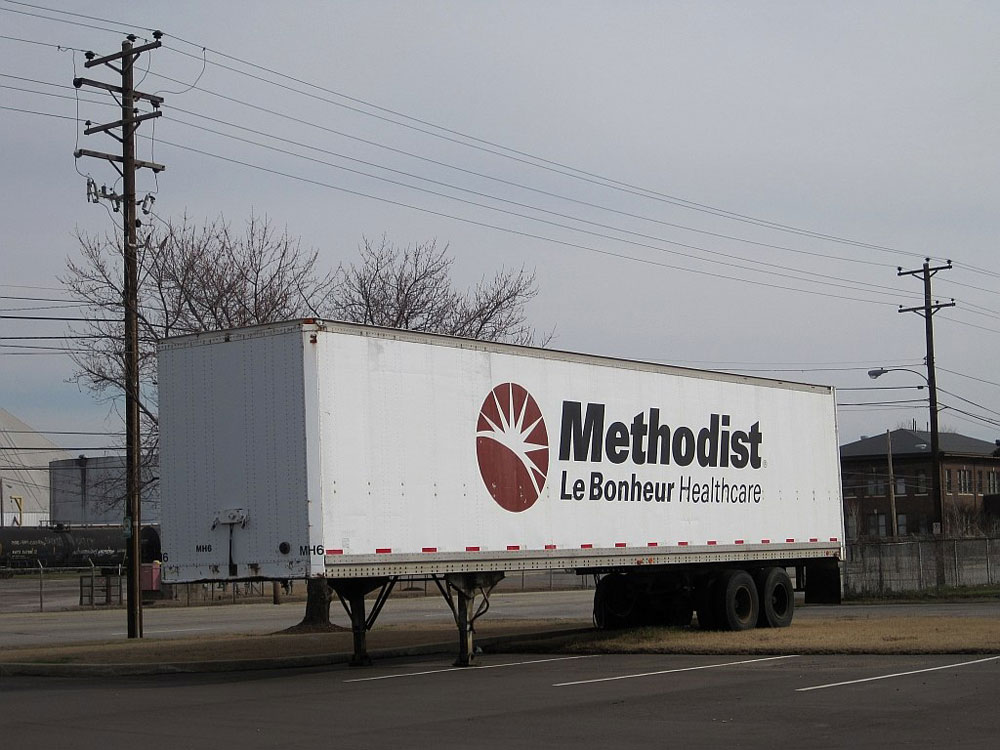
July 30, 2019; ProPublica
A devastating investigation by ProPublica and the team of journalists at MLK50 has been exposing the exploitive financial practices of some nonprofit hospitals that sue low-income patients for bills they are unable to pay. In the most egregious cases, the hospitals even sued some of their own workers, including many who took home poverty-level wages.
One of the hospitals investigated was Methodist Le Bonheur Healthcare in Memphis, about which we wrote last month. The hospital sued Carrie Barrett, who earned a bit more than $9.00 an hour at a grocery store, for a $12,000 hospital bill that grew over a decade of interest and fees to $33,000. As Karen Kahn wrote then:
Nonprofit hospitals are required by law to have financial assistance programs; the law also prohibits hospitals from taking “extraordinary collection actions,” according to Jenifer Bosco, staff attorney at the National Consumer Law Center. She told NPR [National Public Radio] that nonprofit hospitals “have to provide some sort of financial help for lower-income people, but the federal rules don’t say how much help, and they don’t say how poor you have to be to qualify [or] if you have to be insured or uninsured.”
This particular issue gets under the collar of Senator Chuck Grassley of Iowa, who has been demanding reports on just such nonprofit hospital violations from the IRS.
A month after the report was published, Bonheur says it has seen the light, promising to raise its wages, significantly expand its financial assistance policy, and pledging to stop suing its own employees for medical debts.
Methodist is the region’s second-largest private employer, operating five hospitals in Shelby County. Its lowest-paid employees make $10 an hour and 17 percent of its 12,500 workers made less than $15 an hour, the hospital reported in response to MLK50’s 2018 Living Wage Survey.
Sign up for our free newsletters
Subscribe to NPQ's newsletters to have our top stories delivered directly to your inbox.
By signing up, you agree to our privacy policy and terms of use, and to receive messages from NPQ and our partners.
Starting in September, the hospital will raise its minimum wage from $10.08 to $13.50. By Jan. 1, 2021, the minimum wage will rise to $15 an hour. Raising the minimum wage and adjusting other salaries to account for wage compression is estimated to cost the hospital $14 million a year, said Carol Ross-Spang, Methodist’s chief human resources officer. The wage increase would affect more than 2,000 employees.
In case anyone cares, the United Methodist Church’s Social Principles state, “Every person has the right to a job at a living wage.”
Also, starting today, August 1st, the hospital will raise its ceiling on the maximum income patients can make before becoming ineligible for financial assistance from 125 percent of the federal poverty line to 250 percent, or $53,325 for a family of three. This makes half the residents of Memphis eligible.
“We were humbled to learn that while there’s so much good happening across our health system each day, we can and must do more,” said Methodist CEO and president Michael Ugwueke. Still, Ugwueke has not vowed to end the practice of suing patients altogether, nor has he revealed whether Methodist plans to re-file the 100-plus lawsuits it ended up dropping over the past month. Maybe the hospital is not yet humble enough.
According to an MLK50-ProPublica analysis of Shelby County General Sessions Court records, the hospital system, which is affiliated with the United Methodist Church, filed more than 8,300 lawsuits between 2014 and 2018. That was more than all but one creditor during that five-year period.
The hospital said when it does win a judgment, it will no longer seek or accept court-ordered interest on medical debt, nor seek to collect lawyers’ fees or court costs from plaintiffs.—Ruth McCambridge












